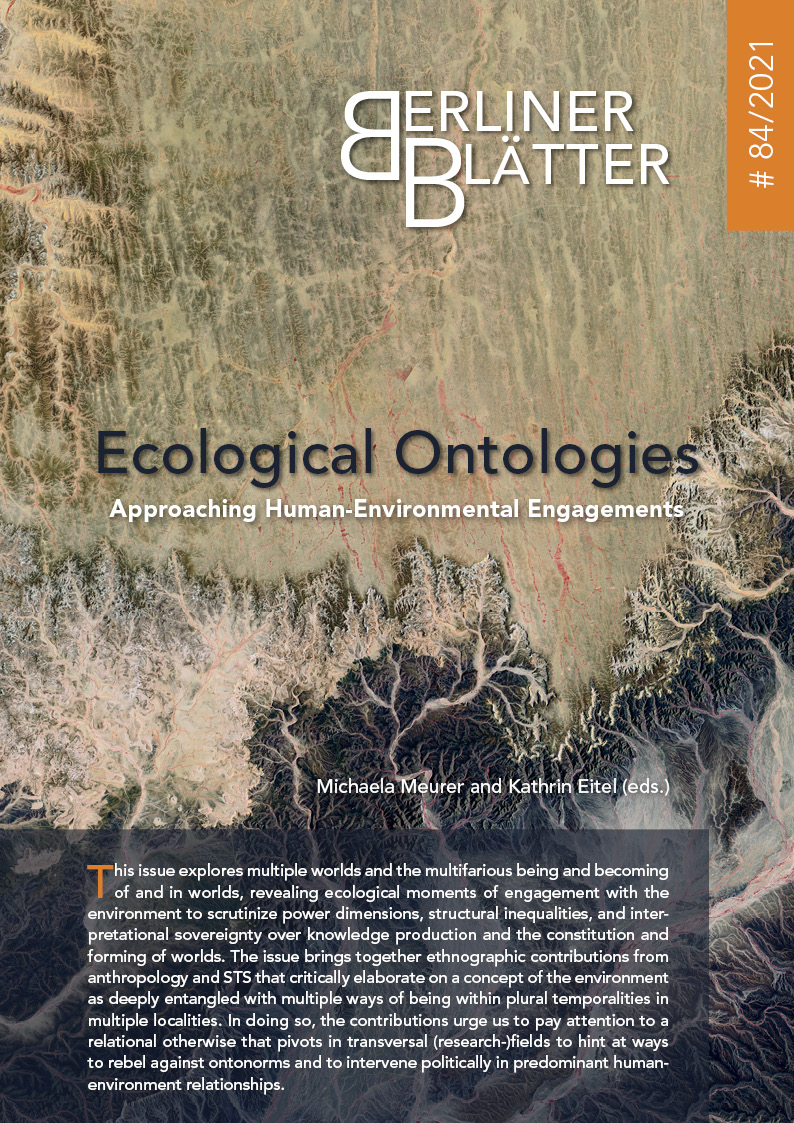More-Than-Human Eating
Reconfiguring Environment|Body|Mind Relations in the Anthropocene
Schlagworte:
Ernährungssicherheit, Antizipation, Eating Body, More-than-Human, MikrobiomAbstract
In diesem Artikel befassen wir uns mit more-than-human Praktiken des Essens und inwiefern diese unser gegenwärtiges Verständnis von Bio- und Geopolitik in Frage stellen. Wir beginnen mit einem komprimierten Überblick über anthropologische Perspektiven auf Essen und Ernährung und diskutieren mögliche notwendige Erweiterungen der Anliegen dieser in der gegenwärtigen Epoche des Anthropozän. Im Anschluss stellen wir unsere Analyse drei empirischer Fallstudien von antizipativen more-than-human Praktiken des Essens dar: ein Set von künstlerischen Antizipationen von Essen der Zukunft; Mikrobiom-Forschung und damit verknüpfte Praktiken des Biohacking; und zuletzt einen Forschungskomplex zur deutschen Ernährungssicherheit im Kontext von planetarischen Belastungsgrenzen. Die Art und Weise, wie die Grenzen von Körper|Geist|Umwelt in diesen drei Fällen porös gemacht werden, steht im Fokus unserer Analyse. Das Ich des verkörperten menschlichen Subjekts, so wird deutlich, tritt als multipel hervor – kolonisiert und begleitet von einer Vielfalt von Mikroorganismen. Wie könnte ein solches Kollektiv zum Subjekt von Governance und von Technologien des Selbst werden? Wir schließen mit einem Plädoyer für eine experimentelle para-sitische Anthropologie, die eine kritische Auseinandersetzung mit entstehenden Formen von Bio- und Geopolitik im Anthropozän ermöglicht.
Downloads
Veröffentlicht
Versionen
- 2021-06-21 (2)
- 2021-06-21 (1)
Zitationsvorschlag
Ausgabe
Rubrik
Lizenz
Copyright (c) 2021 Berliner Blätter

Dieses Werk steht unter der Lizenz Creative Commons Namensnennung - Nicht-kommerziell - Weitergabe unter gleichen Bedingungen 4.0 International.








